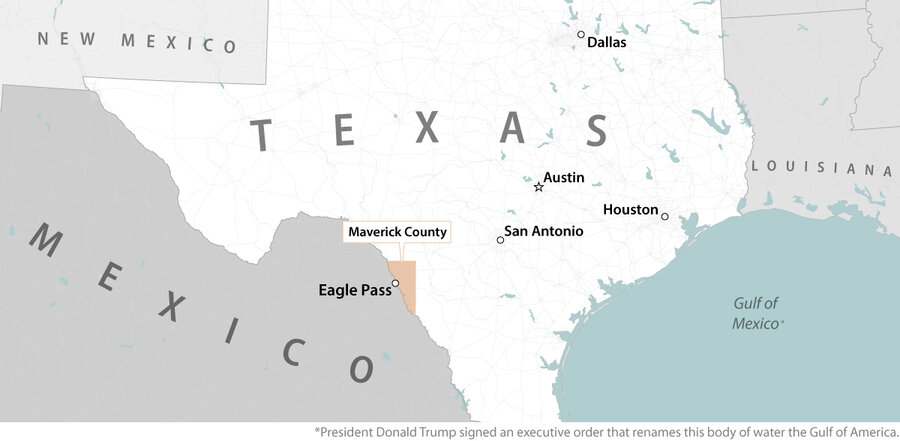China pushed back against U.S. plans to revoke student visas. In a formal diplomatic protest, the Chinese Embassy in Washington said the move threatens Chinese students’ “legitimate rights” and urged the United States to “immediately correct its mistakes.” China’s Foreign Ministry on Wednesday called the U.S. decision “discriminatory” and said it would damage America’s reputation. The more than 277,000 students from China make up nearly a quarter of all foreign students in the U.S., although their numbers have declined in recent years amid growing U.S.-China tensions. – Staff
For the first time in three years, the U.S. economy contracted. It shrank at a 0.2% annual pace from January through March as trade wars disrupted business, the government said Thursday. First-quarter growth was brought down by a surge in imports as U.S. companies hurried to bring in foreign goods before the president imposed new import taxes. Consumer spending also slowed sharply, and federal government spending fell at a 4.6% annual pace, the biggest drop in three years. – The Associated Press
Israel approved the expansion of West Bank settlements. Half of the 22 settlements are new; the others are outposts and farms that will now be deemed legal under Israeli law. Peace Now, a left-wing organization monitoring settlement activity, cautioned the settlements could “dramatically reshape the West Bank,” further entrenching the occupation. Defense Minister Israel Katz praised the move as helping block the establishment of a Palestinian state. Palestinian leaders called it a “dangerous escalation.” The settlements, illegal under international law, have expanded sharply under the current Israeli government, which for the first time has settlers in two senior Cabinet positions. – Staff
A new youth climate lawsuit set a precedent in the U.S. A group of 22 plaintiffs, many of whom were involved in successful state climate lawsuits, claims that a spate of executive orders promising to “unleash” fossil fuels and dismantle climate protections threaten their constitutional right to life, liberty, and personal security. They argue the Trump administration is “scrubbing, suppressing and dismantling climate science.” This marks the first comprehensive legal action targeting wide-ranging administrative efforts to eliminate research, programs, incentives, and speech connected to the warming planet. – Staff
Threats against federal U.S. judges have spiked. Eighty judges received threats from October 2024 through February 2025, according to internal data compiled by the U.S. Marshals Service and reported by The New York Times. But in just six weeks – beginning March 1 – 162 judges received threats. Threats to federal judges had already doubled between 2021 and 2024, according to a Marshals Service survey. Judges are now considering adopting their own armed security force, The Wall Street Journal reported. – Staff
Harvard can continue enrolling international students. A federal judge on Thursday extended an order blocking the Trump administration’s attempt to bar Harvard University from enrolling foreign students, as a lawsuit proceeds. U.S. District Judge Allison Burroughs extended the block she imposed last week. The dispute over international enrollment at Harvard is the latest escalation in a battle between the White House and America’s oldest and wealthiest college. – AP













